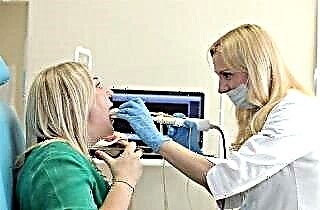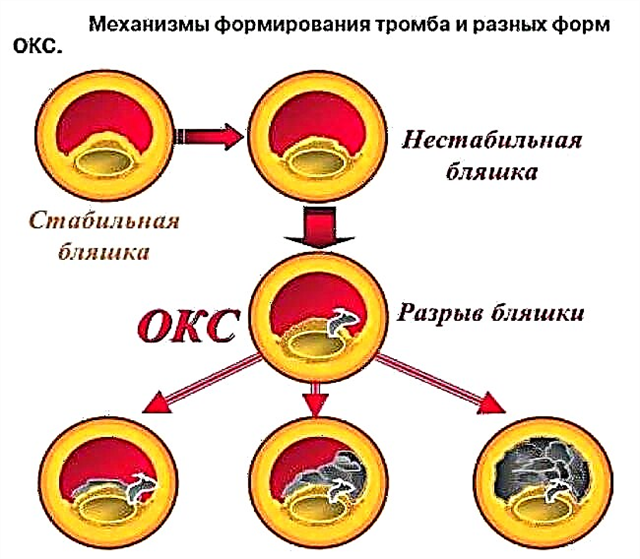Chronic decompensated tonsillitis is a type of tonsillitis. This is the most severe form of the disease, when the tonsils cease to effectively perform the functions assigned to them to protect the body and themselves become a focus of infection. The tissues adjacent to them also become inflamed up to suppuration. As a rule, exacerbation of inflammatory processes occurs more than three times a year. In this case, the infection can spread throughout the body, affecting the internal organs.
Causes of the disease
 Decompensated tonsillitis develops gradually and appears under the influence of the following negative factors:
Decompensated tonsillitis develops gradually and appears under the influence of the following negative factors:
- frequent use of antibiotics;
- chronic diseases of the oral cavity;
- bacterial infections;
- regular sore throats;
- decreased immunity;
- sinus diseases and so on.
This ailment leads to intoxication, when weakness, fatigue, pain in the joints and the region of the heart appear.
In addition, a low subfebrile temperature not higher than 37.5 degrees Celsius and a decrease in blood pressure can be diagnosed. If the correct diagnosis is not promptly made, then this form of tonsillitis will lead to complications.
Complications
Malfunctions of the body with complications appear at various levels. The main reason is considered to be a decrease in immunity. By no means always arising pathologies are associated with tonsillitis and the correct diagnosis is made. Therefore, erroneous treatment is often prescribed, which has a minimal effect on the course of the disease and is ineffective.
Symptoms
 This type of tonsillitis manifests itself in the form of certain symptoms. These are the following signs:
This type of tonsillitis manifests itself in the form of certain symptoms. These are the following signs:
- Malaise.
- Periodic increase in body temperature (slight).
- Stability of sore throat.
- An increase in the size of the tonsils.
- Suppuration of the tonsils and adjacent tissues of the oral cavity.
- Chronic fatigue.
- Disruption of the kidneys, heart and other important organs.
- Pronounced intoxication and so on.
All this speaks of the need to start treatment as soon as possible.
Characteristic features of treatment
How is decompensated tonsillitis treated? In this case, doctors use two different rehabilitation methods - conservative and surgical. The conservative method is complex and involves the following:
 Prescribing drugs to improve the immune system.
Prescribing drugs to improve the immune system.- Acupuncture.
- Manual therapy.
- Antibiotics But before their appointment, an analysis of the microflora of the oral cavity should be carried out in order to determine the type of harmful bacteria present.
- Mechanical cleaning of pus (if any).
- Local rinsing and soaking.
- Inhalation, ultraviolet irradiation and other physiotherapy techniques.
As for drug treatment, it is often carried out in the form of several repetitive courses. Tonsillitis is a contagious disease, so all the people around the patient are at risk. They can also carry pathogenic microbes.
If we talk about surgical intervention, then it is used as an extreme step when the conservative method did not bring the expected results. In some cases, the operation is required immediately - if the disease is too advanced and all of the above methods of treatment are ineffective or completely ineffective.
The fact is that in advanced cases, the tonsils not only cease to play the role of defenders of the body, they themselves are foci of dangerous infections. Therefore, they are completely removed.
Alternative to surgery
 There are several alternatives to avoid surgery. We are talking about the elimination of inflammatory processes through laser exposure and cryogenic surgery. These methods are relevant when patients have certain contraindications for surgical intervention:
There are several alternatives to avoid surgery. We are talking about the elimination of inflammatory processes through laser exposure and cryogenic surgery. These methods are relevant when patients have certain contraindications for surgical intervention:
- heart failure;
- renal failure;
- diabetes;
- hemophilia;
- open tuberculosis;
- pregnancy and so on.
The most gentle way is laser exposure. The laser gently removes inflammation. As a result, the infection completely disappears, and the tonsils themselves return to their normal size. Yes, and patients are much easier to tolerate such an impact. In addition, the rehabilitation period is significantly reduced.
 In some cases, the tonsils may not be removed completely, but partially. This approach is justified if an oncological disease is diagnosed and surgical intervention is strictly contraindicated.
In some cases, the tonsils may not be removed completely, but partially. This approach is justified if an oncological disease is diagnosed and surgical intervention is strictly contraindicated.
Skilled and experienced doctors never immediately prescribe surgery to completely remove the tonsils. After all, it is the tonsils that are on guard of the whole organism and protect it from all kinds of infections.
And as long as there is at least one chance to cope with the disease conservatively, the operation will not be scheduled. For the treatment of decompensated tonsillitis, many use traditional medicine recipes. But they turn out to be effective only at the initial stages of the course of the disease.

 Prescribing drugs to improve the immune system.
Prescribing drugs to improve the immune system.

